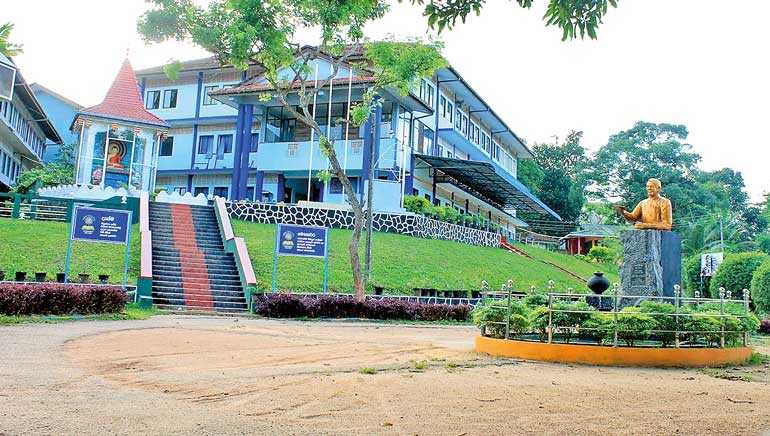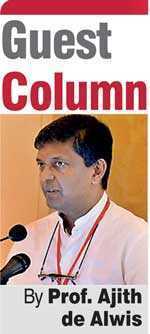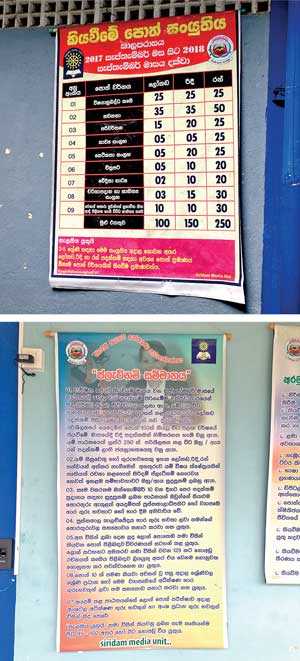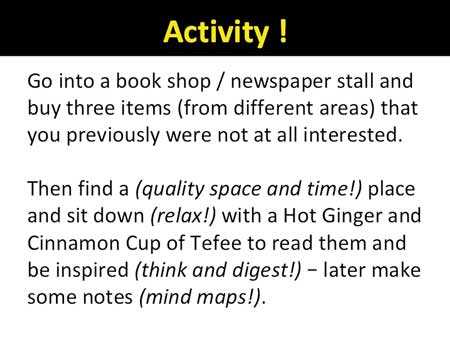Monday Feb 16, 2026
Monday Feb 16, 2026
Thursday, 1 November 2018 00:29 - - {{hitsCtrl.values.hits}}

The month of October has come to an end and the end indeed had real surprises. Some may say that if one can read writing on the wall, some of these surprises are not really surprises. Reading the writing on the wall is different and understanding chaos is never easy either. My emphasis actually is on reading as an activity that is seriously falling by the wayside, perhaps across the world. 
The month of October is National Reading Month, which was introduced to the Sri Lankan calendar in 2004 by the National Library and Ministry of Cultural Affairs.
How much we read at least during this National Month for Reading?
I do ask students ‘What was the title of the last book that you read?’ and they squirm – finally blurting out really cannot remember the name of the book and the last book was like three months back. I know this is not the norm but this type of answer comes with a higher frequency, which gives me increasing stress as I know that this is not good – university students and future decision makers.
I place on record here an exercise that I gave to a batch of MBA students and again the feedback was nil. In there is a creative cup of coffee and tea together as befits a lesson on creativity for innovation. How can one fail over an assignment of this sort?
My view is, it is not about failing a group but overtime realising a failure when one distances oneself from what is good and important for you. It is said that being with the wise helps you and cultivating the habit of friendship with books is definitely a life skill, of course keeping in mind what Mark Twain stated on reading good books.
Siridhamma College, Galle
I really was happy to see a school that promotes reading with some zeal when I had a chance to visit Siridhamma College Galle. Upon entering the school near the office a poster caught my attention – Platinum awards for students who have read the most.
The school has an awards ceremony during the month of October. Closer observation – reading more of the posters available – indicated that there is a clear evaluation scheme as well as a marking scheme. Students are expected to read from different areas and clear recommendations are available. I noted that reading biographies are considered very important and a higher weightage is given.
It is not only reading a book and marking that completes the task of reading a book. The student has to write a short essay on the essence of the contents too. One student at Grade 4 level in the school in fact had gone on to publish a book from all her collected write-ups.
The discussion with the school principal was quite illuminating and the discussion revealed the leader of the movement. School Principal Raweendra Pushpakumara has introduced the scheme at his school and he was quite happy about what he has done. I too was quite happy having listened to him where the enthusiasm was quite clearly present. 
His history for such thinking was equally interesting. He owed his interest to his parents and he related the story of his mother who still purchases books every month from her pension. So much so the bookshop owner had felt quite bad for selling so much knowing that she is using her pension. He has devised a scheme of borrowing books for a small payment. Interesting how positive developments take place.
Well, if someone wants to know how partnerships evolve for progress, one is reminded of child Faraday’s relationship with a bookshop owner in early London. There is a story which states that upon the observation of young Faraday’s reading of what is displayed near the window, apparently the owner of the shop has advanced page by page so Faraday actually got the chance to read the whole book!
I suppose we all know that Faraday who went on to become one of the greatest scientists of the era really did not have any education and certainly not money. It was purely reading the right stuff and writing that took him to his position of eminence.
The Principal has clearly received the gift for reading from his mother. The real beauty of this situation is that he has crafted a mechanism for the first time in the school system of Sri Lanka to push this good habit among students.
During my discussion with him it transpired that the Education Ministry has actually now launched the scheme across schools and he was quite proud about his school for being a beacon for this development. Let us look forward to seeing leaders coming out from this cohort if the statement has validity.
Leaders are readers
Yes, reading is very important. Definitely not only newspapers and especially when the newspapers are so poor in content. If one forms ideas from extraction of such poor quality rags, one could be in serious trouble. On the other hand we can be sure that leaders are readers. Real leaders then write as well and do not get someone else writing for them.
Leaders are readers – is it really true? The fundamental skill set of a person is impacted by activities that one engages in and the net result we may call as experience. Truly great leaders should definitely have habits of excellence, which actually drive them to such positions. Some habits are definitely difficult and once cultivated and practiced results become quite impressive. Of all the habits reading is considered one of the most simple yet most important to have.
A former US President Harry S Truman one stated: “Not all readers are leaders but all leaders are readers!” Look at excellent business leaders – not those who have built empires based on being agents and running agencies, but true enterprise builders, one sees that this statement is true.
Why does reading offer such an opportunity? It is an activity that takes you places and gives you exposure that no other way can. I think when you read a book on Mahatma Gandhi and about his salt march – still in a country where salt is imported – with the book in front of your plate of lunch, you are literally having lunch with Gandhi! 
Books give you time with great people, expose you to smart experiences and always lead you to smart learning. Again if one is to confine oneself to a certain area, is that wise? The answer here is that reading across fields – be it fiction and non-fiction, history or economics, science or arts – the practice of reading across is actually beneficial for one to be creative. The stimulants of different types are fed to you and we know the power of creative ideas. You will be feeding yourself to realise your real value.
Some may say they are too busy, they love to read yet they find no time. They are missing success by not reading in the first place (so we really believe that leaders are readers!) and about not having time one must understand that you will never be presented with time be it for reading or anything else. You must find time. The way you set yourself your priorities and the quality of your choices will obviously take you up or down.
We take pride in boasting about our literacy rates. We the academics have even increased our salaries at one stage by securing ourselves a book allowance. That the book allowance was never really used to purchase books definitely by a great majority of the recipients is well known. It is indeed sad to see that the literacy rate has been brought about without the habit of reading.
A smart observer may indicate after observing the current social pattern that both our young and the old are very much hooked on Facebook – it is interesting to see how much we are interested in finding free Wi-Fi availability in any location! – but that is really a curse in disguise.
It should not be about sharing posts but about sharing knowledge and Abraham Lincoln said it and so important to today’s theme: “My best friend is a person who will give me a book I have not read.” The circle of friends that you must be thinking about perhaps needs a new definition!